Alkaline foods are essential for good health. They can help to balance the pH level of fluids in the body, including the blood and urine.
From maintaining healthy bone structure to lowering the risk for hypertension and stroke, even improving chronic pain and inflammation…there are a wide range of health benefits associated with following an alkaline diet.
An alkaline diet can boost vitamin absorption and prevent magnesium deficiency for example. Cancerous cell death (apoptosis) is more likely to occur in an alkaline body studies show. Alkalinity can also decrease inflammation and the risk for diseases such as cancer.
You can protect your body from inflammation by maintaining an alkaline diet. Conditions like obesity and decreasing leptin levels are caused by inflammatory states.
An alkaline diet gives your body the chance to achieve normal leptin levels and feel satisfied from eating the right amount of calories.
Yet which foods should you include in your diet for best results? Here are ten of the best…
1. Kale
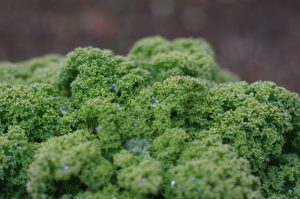
Kale is a cruciferous green vegetable that’s high in fiber and water. These qualities can promote a healthy digestive tract and prevent constipation. Kale is a rich source of iron that is essential for the formation of hemoglobin and enzymes. These transport oxygen to various parts of the body, encouraging cell growth, proper liver function and more.
Eating kale may offer protection against diabetes. Studies have shown that a high intake of fiber may lower blood glucose levels in people with Type-1 diabetes. Those with Type-2 Diabetes may experience improved blood sugar levels, lipids and insulin levels.
Kale contains the powerful antioxidant, Alpha Lipoic-Acid that studies suggest may help to lower glucose levels, increasing insulin levels and decreasing peripheral neuropathy and autonomic neuropathy in patients with diabetes.
Kale contains chlorophyll that can help to prevent the body from absorbing heterocyclic amines. These are chemicals that are produced at high temperature when grilling animal-derived foods and they are associated with cancer.
Kale is also high in beta-carotene, a caretnoid that is converted by the body into Vitamin A when it’s needed. Vitamin A enables all bodily tissues to grow, including skin and hair.
2. Avocado
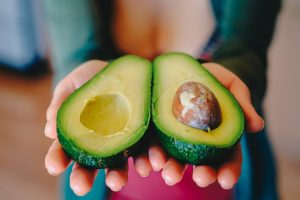
The avocado is a powerful superfood containing 20 different minerals and vitamins. Loaded with fiber, they can help with weight loss. Rich in monounsaturated fatty acids that can promote heart health and reduce inflammation in the body. Oleic acid has been shown to have beneficial effects on genes linked to cancer.
Eating avocados can lower cholesterol and triglyceride levels – just some of the several blood markers, that along with blood pressure is linked to an increased risk of heart disease.
Equally as amazing is how the fat in avcados can help you to absorb nutrients from plant foods. One study showed that adding avocado or avocado oil to a salad or salsa can increase antioxidant absorption by 2.6 to 25-fold.
3. Spinach
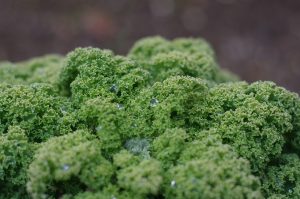
Spinach has various health benefits that can help with lowering cholesterol levels. High in niacin and zinc, spinach is a good source of vitamins and minerals including Vitamins A, C, E, and K. It is a good source of Vitamin B6, Folate, Calcium, Iron, Magnesium, Phosphorus, Potassium, Copper and Manganese.
Containing an abundance of flavonoids that act as antioxidants to keep cholesterol from oxidising, along with protecting your body from free radical damage – especially in the colon. Studies support that spinach can help maintain vigorous brain function, memory and mental clarity.
4. Celery
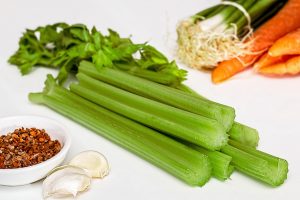
Celery is a powerful source of antioxidants, enxymes and minerals. Vitamin C, K, Vitamin B6, Potassium and Folate are all found in this vegetable. Celery acts as a powerful anti-inflammatory to support overall health, especially as someone ages.
It does this by fighting free radical damage (oxidative stress) that can lead to inflammation, that otherwise contributes to chronic diseases like cancer, heart disease, arthritis, etc.
Celery seed extracts may help to lower high blood pressure and may even prevent ulcers by protecting the lining of the digestive tract.
Celery contains a unique compound called 3-n-butylphthalide (BuPh) that has been reported to have lipid lowering action. This means it has cholesterol lowering abilities that may be useful in maintaining or improving heart health.
5. Garlic
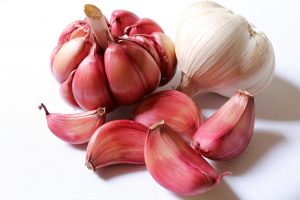
Garlic contains potent medicinal properties such as allicin that can benefit the body in various ways. Allicin has the ability to fight certain pathogens and is a natural antibiotic that kills viruses, bacteria and fungus.
Allicin can boost immunity, thin the blood to avoid blood clots, remove harmful toxins due to its antioxidant abilities, prevent colds and flu, bladder infections and may even potentially prevent cancer.
Eating garlic can help with detoxifying heavy metals in the body, therefore helping to protect against organ damage. One study shown garlic to significantly reduce lead toxicity and related symptoms.
Garlic may also help to prevent Alzheimer’s Disease and Dementia due to its antioxidants that support the body’s protective mechanisms against oxidative damage. This may play an important role in significantly reducing oxidative stress in people with high blood pressure.
When reduced cholesterol and blood pressure levels are combined, this may help to prevent common brain diseases such as Alzheimer’s and dementia. This means that garlic may potentially reduce dementia and heart disease risk.
6. Broccoli
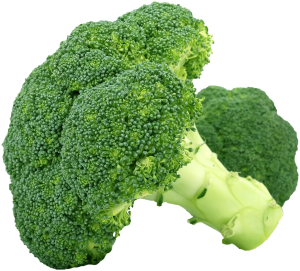
Broccoli is a good source of folate, that plays an important role in the production of red blood cells. Many studies suggest that consuming plant foods like broccoli can decrease the risk of diabetes, heart disease and obesity.
Researchers suggest that the sulforaphane, a sulfur-containing compound found in cruciferous vegetables, gives them their cancer fighting properties. Sulforaphane can inhibit the enzyme histone deacetylase (HDAC) that is known to be involved in cancer cell progression.
Broccoli is a rich source of the antioxidant Vitamin C that can help to fight skin damage caused by the sun and pollution, reducing wrinkles and improving your skin texture overall. Vitamin C plays a vital role in forming collagen, that creates the support system for healthy skin. Broccoli provides at least 81 milligrams of Vitamin C in one cup.
Eating broccoli can improve your digestion, prevent constipation and even lower the risk of colon cancer. The high level of fiber has also been shown to lower blood pressure and cholesterol levels. More fiber can improve your insulin sensitivity, even improving the weight loss process for obese people.
7. Parsley
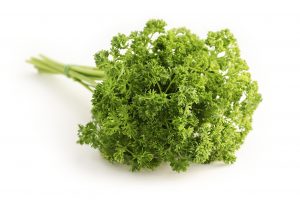
Parsley contains powerful anti-inflammatory properties that can provide pain relief and help to strengthen the immune system. This herb can have many soothing properties for gastrointestinal issues such as nausea and indigestion.
As a high source of flavonoid antioxidants, parsley is responsible for many of the disease-fighting benefits being researched.
Antioxidants can also slow the aging process by fighting free radical damage, or oxidative stress, along with inflammation in the body. This is essential because free radicals are known to contribute to every age-related diseases including cancer, heart disease, eye disorders and neurodegenerative diseases.
Parlsy has many beneficial essential oils that can help fight cancer formation, slowing tumor growth, neutralising any oxidative stress and fighting off any harmful carcinogens in the body.
For this reason, parsley is sometimes known as a “chemoprotective” plant as it protects DNA from damage, stopping cell mutation and inducing apoptosis – the death of harmful cells.
8. Cucumber
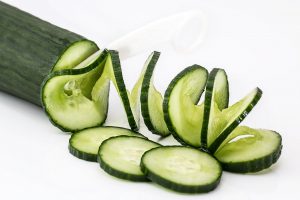
Cucumber is made up of around 96% water, meaning it can cleanse waste products out of your system. Vitamins A, B and C can be found in abundance in Cucumber, along with Magnesium and Potassium.
Cucumbers can help you to stay hydrated for longer, support your heart health thanks to their potassium (152mg per cup) that can help to lower blood pressure.
A review of the best studies conducted on potassium intake showed that a higher intake “is associated with lower rates of stroke and reduced risk of total cardiovascular disease.”
Cucumber is often used as anti-wrinkle agent as it can protect the skin from aging. While an anti-inflammatory substance called fisetin that’s present in cucumber can play an important role in brain health, having “the ability to reduce the impact of age-related neurological diseases on brain function.”
9. Tomatoes
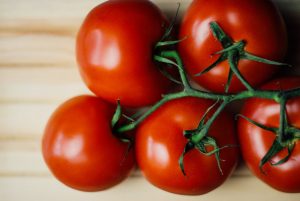
Tomatoes are an excellent source of copper, magnesium and potassium. Containing a high amount of dietary fiber and protein, they can help to protect you against heart disease and cancer due to the powerful antioxidant known as lycopene.
A good source of fiber, tomatoes provide about 1.5 grams per average sized tomato. Tomatoes are also a good source of several vitamins and minerals including Vitamin C, Folate (B9), Potassium and Vitamin K1.
One study found that high concentrations of carotenoids that are found in tomatoes, may protect against breast cancer development. Another study also supported that tomatoes may protect against sunburn, with 40% fewer sunburns after ingesting 40 grams of tomato paste (providing 16mg of lycopene) with olive oil, every day for 10 weeks.
10. Cauliflower
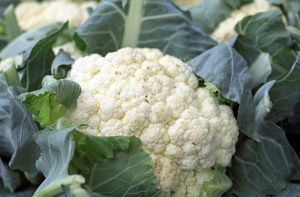
Cauliflower has many health promoting benefits. As a cruciferous vegetable, it is a natural source of antioxidants and phytochemicals. It also supplies essential vitamins, carotenoids, fiber, soluble sugars, minerals and phenolic compounds.
By helping reduce your cancer risk with its chemo-preventive agents, cauliflower can stall early phases of cancer development and shut off tumor growth. Cauliflower can inhibit the development of chemically induced carcinogensis, according to studies.
By reducing inflammation, Cauliflower can boost your immunity and keep your body free from harmful bacteria, infections and common colds.
The anti-inflammatory benefits of Cauliflower can also lessen your chances of high blood pressure and out-of-control cholesterol levels from developing.
Cauliflower is also high in Vitamin C, Vitamin K and antioxidants that can maintain bone health and prevent blood clotting and bone calcification.
Eat Alkaline Foods For Best Health

For all of the above reasons, these foods are excellent additions into your diet. The more alkaline foods you have in your diet, the easier it is to stay in good health for the long-term.
A vegan ketogenic diet in particular is highly beneficial as it can keep your body’s pH in a state of alkalinity. When the body is burning fat, it goes into a state of ketosis for energy.
Ketones burn far more efficiently than carbs, meaning they create far less reactive oxygen species and free radicals that can otherwise damage your cellular and mitochondrial cell membranes, proteins and DNA. When the body follows a vegan ketogenic diet, it means that the body can naturally start to heal itself on a cellular level.
Aim for variety and choosing to consciously add more green vegetables into your diet is highly recommended. Eating between 9-14 portions of fresh or frozen vegetables daily, preferably organic, is ideal.
They can be made in soups, raw juiced, stir-fried, steamed, etc. The key is to add as many of these alkaline foods into your diet as possible to receive maximum health benefits.

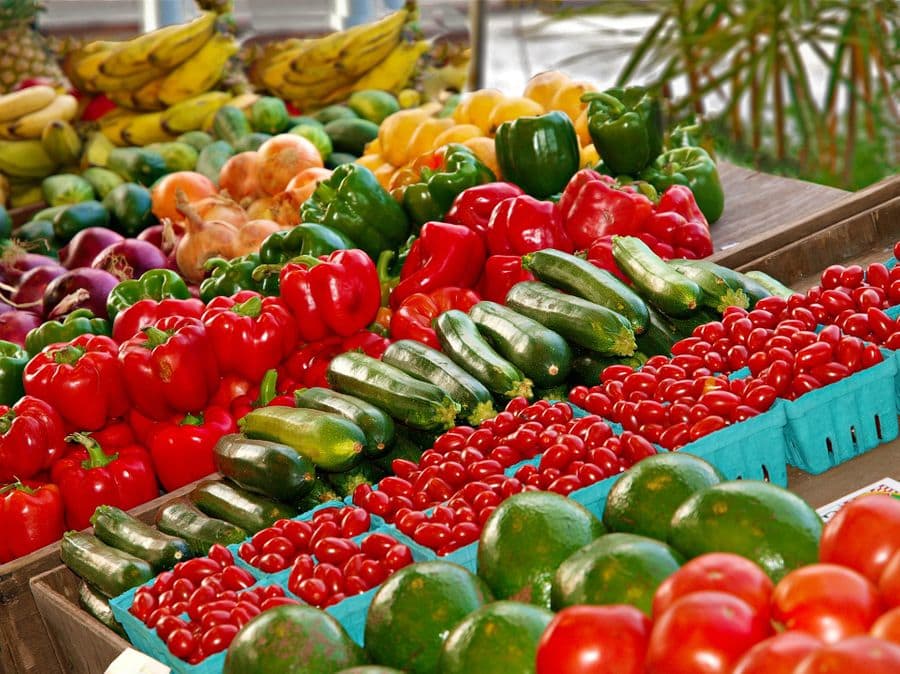


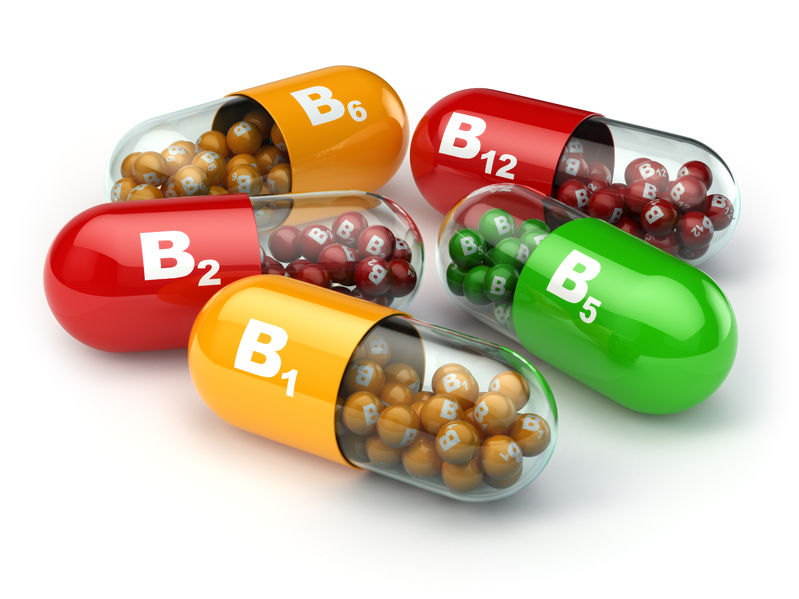
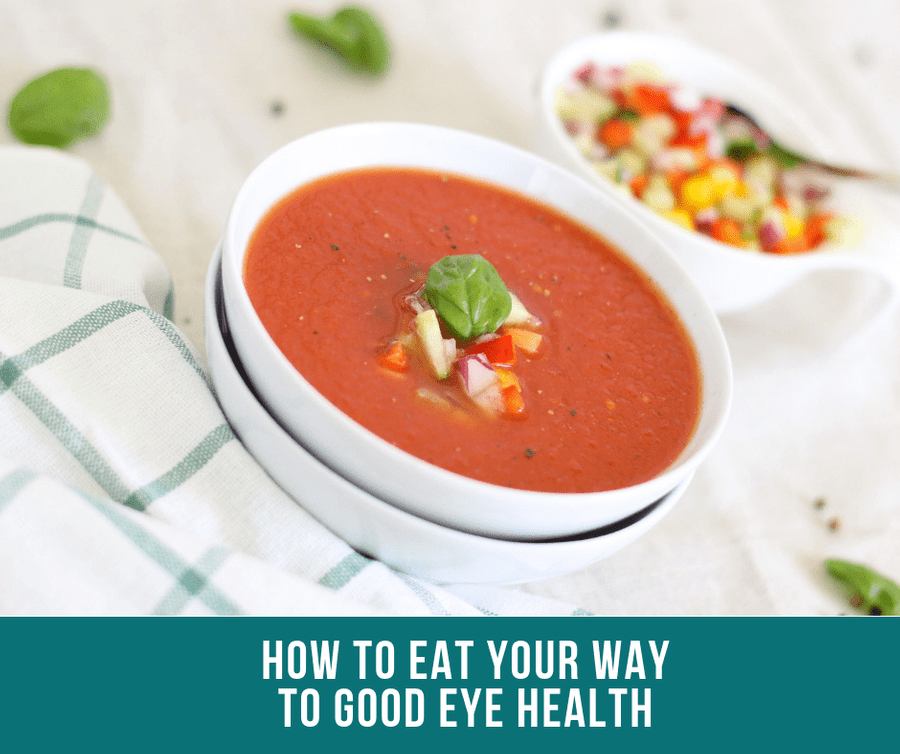
Hello Robert,
Just reading the article on 10 alkaline foods above. At the top it says…Cancerous cell is more likely to appear in an alkaline body studies show. Should this not be an acid body?
It says; “cancerous cell death”…
Please keep me posted